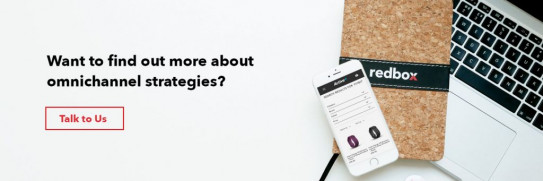
Making in-store search a reality for all retailers.
Discovery is the single most important differentiator between Amazon and the rest of the top 49 online shops.
‘Best practice’ articles have emphasised on UX design, mobile responsiveness and simple checkout, all of which are crucial to driving sales. However, discovery, and specifically, search inside the store has begun to attract attention.
Thanks to Google and Amazon, shoppers’ expectations from in-store search have gone way beyond what most stores can handle with traditional search. Shoppers want to see products they’re looking to buy, irrespective of how fuzzy their search query is. Users want to see results that are on-trend and even what could be the next trend. These expectations warrant something that is artificially intelligent, which can cater for human error and most importantly can understand natural language.
With search technology constantly developing and allowing for far more accurate results, it is opening the opportunity for other businesses to make it a focus of their customer journeys as well.
Natural Language Search example with "top rated bags with front pocket"
Klevu: Your in-store search solution
Klevu is the latest SAAS company making intuitive in-site search a reality for retailers. Started in Finland in 2013, the company quickly gained popularity with their Magento integration, which is used by over 3000 merchants.
"We started with the mission that every retailer on the planet can provide an Amazon-like (and even go beyond) search experience to shoppers." says Nilay, founder and CEO of Klevu.
Klevu technology has four key features:
- Natural Language Search
- Artificially Intelligent Learning
- Custom Merchandising
- Analytics
Understanding that 'Drapes' are also 'Curtains'
The first key feature is Natural Language Processing (NLP). Klevu understands what the customer is looking for by analysing the language used, or noun association. Let's say the customer types in "drapes" into the search box, but the website only uses the word "curtains" throughout the catalogue. Klevu can automatically return “curtains” in the results by understanding that “drapes” could also mean “curtains”.
In addition to this, Klevu has an Objective Association feature which understands stop words. For example, if somebody searches “I am looking for a tent under $500.” Here, Klevu understands the word ‘under.’ This word talks about the pricing constraint and that’s the NLP involved there - only showing results appropriate to the search.
Another example could be, if someone searches “table lamp” vs “lamp table”, the results should be different. The tricky one is to handle the latter, ‘lamp table’. The shopper is looking for a table that can be used to keep a lamp on. Most engines would still return table lamps, however, with Klevu’s technology, it is possible to understand the noun in the query that the shopper is emphasising.
The above are basic tenets of NLP and Klevu is on a journey to make search fully conversational, using natural language. The Klevu team is also taking the curve of semantic search to a new level in languages other than English. It is also possible for retailers to personalise Klevu’s robotic engine for NLP for their online store.
Technology that learns on its own
The second key feature in the Klevu offering is its ability to learn based on how users are interacting with the results. Klevu learns automatically from the shopping behaviour of users with search and automatically optimises the results.
The company offers this thanks to its algorithm that defines the ranking of products. All the data on the site is monitored, such as which products are clicked, which terms are searched for, from where they are searched, what time of the day it is, what actually is being checked out and so on, allowing for optimised results leading to increase in search accuracy.
Make the products you want, stand out
Klevu users are also given the option to manually merchandise their search results, using product boosting and category / attribute rules. Retailers can apply and configure a range of rules for promoting products, beyond just having a search feature. A retailer could put a preference on which products they want to promote depending on the need of a higher profit margin, or to clear stock, or a particular marketing strategy.
Understanding the results and ROI
Seeing the results of an investment into a technology such a Klevu is important for any retailer looking to successfully increase sales. Klevu offers extensive analytics around the usage of search terms, what was clicked, what sales were completed, as well as the ‘search to purchase journey’, allowing for a transparent overview of how the technology is performing and ultimately if it is delivering a clear ROI.
Klevu is the first of its kind to offer natural language, artificially intelligent search that has solid business centric merchandising capabilities.
To find out more information on Klevu, click here.
